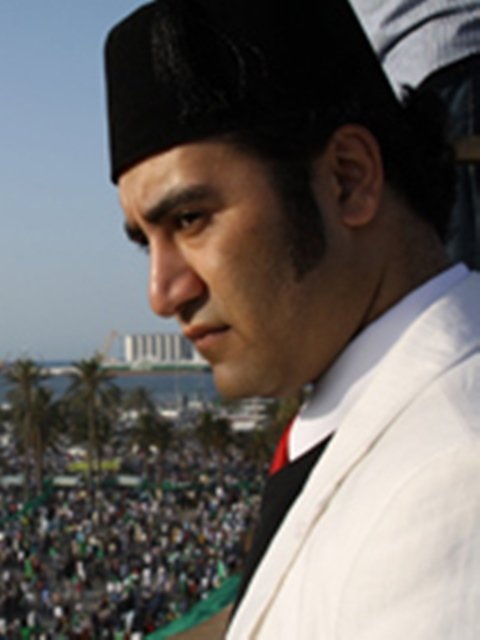‘No friends but the mountains’: Washington seeks to ensnare Kurds

The targeting of Kurdish civilians in Syria by US-supported armed thugs is part of a deliberate attempt to galvanize the Kurds and pit them in a resurgent struggle against the non-Kurd regions.
The Kurdish Democratic Union Party and other sources are now reporting that Kurdish men, women, and children are systematically being tortured, raped, and executed. Fighting has broken out between Syrian Kurds and the insurgent forces supported by the US, UK, France, Turkey, Israel, Saudi Arabia, and Qatar.
Russian Foreign Minister Sergey Lavrov and the Iranian Parliament
have condemned the targeting of Syrian Kurds while the Obama
Administration and its cohorts have remained mostly silent.
Lavrov’s insistence that the United Nations Security Council
condemns the violence has also been to no avail.
One of the reasons that the Obama Administration has been silent
is because they are supporting the butchers behind the massacre
and are trying to avoid more embarrassment. The US and its
allies, however, will make supportive noise for the Kurds once
they get the result they are seeking.
Caught in the crossfire of geopolitical games
The geopolitical importance of the Kurds lies in their geography. Kurdistan sits at the heart of the contemporary Middle East. The mountainous region intersects the boundaries of Syria, Turkey, Iraq, Iran, and Armenia. Its position makes it the main point of convergence in the Middle East. This has distinguished Kurdistan as a place where regional rivalries and intrigues are played out. It also means that Kurdistan can be used to create upheaval and instability in Syria, Turkey, Iraq, and Iran.
The contemporary states of the Middle East have all used the Kurds in their rivalries against one another. Time and time again, however, the Kurds have been manipulated in the geopolitical calculi of the Middle East. They have regularly found themselves to be expendable and effectively dropped as partners by those players that their leaders made ill-conceived alliances with. In the past this took place during the centuries-long conflict between the Ottoman and Iranian Empires. Kurdish chieftains proved to be especially decisive in ensuring an Ottoman victory in the Battle of Chaldiran against the Safavids in 1514. Centuries later, Kurdish militias would be recruited by the Ottoman government in its hostilities with the Armenians of Anatolia in the 1890s, only for Kurdish leaders to mistakenly side with the British and face the wrath of the newborn Republic of Turkey. They would incidentally be betrayed by the British in Iraq a few decades later. The Kurds have been oppressed in Turkey ever since.

Mohammed-Reza Shah supported the Iraqi Kurds against the Iraqi
government until 1975. When he received the concessions he wanted
over control of the Shatt Al-Arab from Baghdad, he ended his
support of the Iraqi Kurds, leaving them to face the Iraqi
military. The alliance between Tehran and the Iraqi Kurds would
only be rekindled during the Iran-Iraq War and after the Shah was
ousted.
The Israelis, on the other hand, became interested in the Kurds
as part of their policy of forming alliances with ethnic groups,
such as the Berbers, who live in the sea of Arabs stretching from
Morocco to Iraq. Tel Aviv has used Iraqi Kurdistan as a regional
base against friends, such as Turkey, and foes, such as Iran and
Syria. Yet, Israel has never hesitated to drop the Kurds either.
Using their contacts with the Kurds, it was Tel Aviv that helped the Turkish government capture the Kurdish guerilla leader Abdullah Ocalan.
Turkey in the last decade has slowly loosened its repressive
policies against the Kurds as part of its neo-Ottoman bid to
expand its economic and political influence in the Middle East.
Ankara’s government has even instigated the Iraqi Kurds to clash
with the Iraqi federal government, whereas it has been
unsuccessful in its attempts to entice the Syrian Kurds into its
orbit. It is even alleged that Prime Minister Erodogan had
devised a Turkish-Kurdish federation of some sort that would
eventually incorporate Iraqi Kurdistan and Syrian Kurdistan with
Turkey.
The US government has constantly changed its position on the
Kurds. In coordination with the Shah of Iran, Washington actually
armed the Iraqi Kurds and led them on. The moment that the Shah
got his concessions, the US dropped the Iraqi Kurds by ending its
support. The US then started to support Saddam Hussein against
the Iraqi Kurds and, under the guise of giving agricultural
credits, effectively armed him with the chemical weapons that he
used against them and Iran. After America turned its back on
Saddam Hussein, the US pushed the Kurds to rebel against Baghdad,
only to abandon them once more by leaving them during their hour
of need in a position of deadlock. The US and UK would go on to
use the Kurds as a convenient excuse for establishing their
illegal no-fly zones over Iraq and later to support their
invasion in 2003.
Ironically, while Washington condemned Saddam Hussein for mistreating the Kurds, it actually supported and helped the Turkish government against the Kurds in both Turkey and Iraq. Now the Obama Administration is mutely trying to manipulate the Kurds, in Syria and elsewhere, into destabilizing Syria and the Middle East.

Militarizing the Kurds to Fragment Syria
When the troubles in Syria began in 2011, there was an attempt to
recruit the Syrian Kurds. The Syrian Kurds were cautious and the
recruitment attempts failed. Despite the best attempts of the
Syrian National Council and the other puppet opposition groups
outside of Syria, the Syrian Kurds were not drawn into the ranks
of the insurgency. Instead the Syrian government gave the Kurds a
new level of autonomy.
The systematic massacres of Syrian Kurds mark the start of a new
strategy to entangle the Kurds in the fighting inside Syria. The
targeting of the Syrian Kurds by insurgent groups like Al-Nusra
is premeditated and strategically executed precisely with the
intention of galvanizing the Kurds in Syria and elsewhere into
forming more armed groups and segregating themselves from
non-Kurds. In what looks like the momentum towards a broader
regional conflagration, the leaders of the Kurdistan Regional
Government of Iraqi Kurdistan have also threatened to intervene.
There is actually an old and saturnine proverb which is linked to
what is happening and, at the same time, speaks to the memory of
the Kurdish people about their perception of a tragic history.
The proverb avers that the Kurds have no friends except for the
mountains. The most important thing about this proverb is that it
is the axiom for what has been a mentality of besiegement among
the Kurds: they have no one to rely on but themselves. This is
exactly what the mandarins and strategists conducting the
operations against Syria want to exploit the Kurds to feel; they
want the Kurds to “have no friends except for the mountains” and
to “fight the rest.” The Arabs, the Turks, and the
mixture of ethnic groups that comprise the population of Iran are
“the rest.”
While Israeli and US analysts and experts keep parroting the same propaganda talking points that Syria will be divided into sectarian mini-states based on faith and ethnicity, the Syrians themselves are refuting this. What these experts are saying will happen is a goal that Washington and Tel Aviv are in fact struggling to achieve in Syria. In this context, the ultimate aim of dragging the Kurds into fighting is to divide Syria and fragment the Middle East via resurgent and militant Kurdish ethno-nationalism that shouts that the Kurds have no friends. The Kurds should not be fooled into becoming the cannon fodder of those who seek to divide the Middle East.
They have more friends than just the mountains. Kurdish history,
like the history of the world’s other peoples, is one filled with
both tragedy and exultation. The long story of the Kurds has not
been one of exclusion and discrimination alone. It has been one
of inclusion and regional leadership too. It says something when
the great eagle that is on Egypt’s flag and used as a pan-Arab
symbol and coat of arms by a number of different Arab states is
the emblem of the great Kurdish leader Saladin and that many of
the Middle East’s leaders have been Kurds.
The statements, views and opinions expressed in this column are solely those of the author and do not necessarily represent those of RT.
The statements, views and opinions expressed in this column are solely those of the author and do not necessarily represent those of RT.













